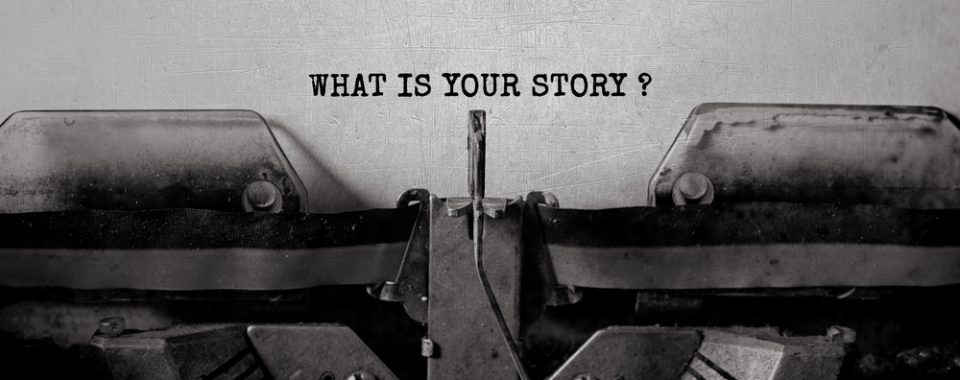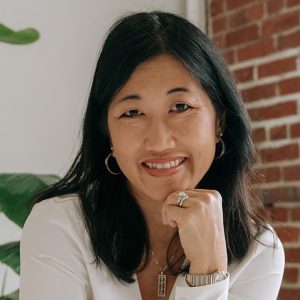
An excerpt from Dim Sum and Faith: How Our Stories Shape our Souls
I want to invite you on a journey of tracing our stories and discovering how they have formed us spiritually. As an Asian American woman, I’ve always followed along, doing what I was told and what others thought I should do. I became skilled at fitting into whatever mold I was given, which often included multiple spaces. I’ve always bridged cultures. Maybe you have too.
Honesty calls for something deep within us and tells us that we can no longer continue as we are. It has required a deep dive into my story and called for something more than I thought I had.
When we are young, the answers we are given are concrete and surprisingly clear. Adults respond to our questions even if they don’t have answers. As we get older and begin to think on our own, we find ourselves dissecting those answers that have become part of our worldview—and discover that some of what we thought was true no longer holds water. That can feel so jarring. Accepting the things that are happening right now to be just “what is” can be so difficult and making sense of it impossible. If your life has been anything like mine, your story has been filled with deep grief alongside deep joy. It seems the two must live together in every story. However, while we may share similar elements of joy and pain, no story is the same.
Dim Sum and Faith is a book about spiritual formation. The goal of spiritual formation is our personal spiritual transformation. As we grow, our capacity to live a spiritual life from the heart increases. To start, we must begin tracing the ways our stories have shaped our souls. Doing so helps us to understand how we have been formed spiritually so that we can begin recognizing and naming what God has been doing in our lives.
I’m extending an invitation to join me in telling our stories with God. Author and speaker Curt Thompson writes, “We are storytellers. We yearn to tell and hear stories of goodness and beauty, and this is the echo of God’s intention. We long for our stories to be about joy, not just reflections of what we believe but of who we are, who we long to be.” The memories that make up the stories of our lives are woven together, and they must be told for us to heal. Thompson says the real details of our stories aren’t as important as how and what we remember.
However, learning to tell our stories can feel like an impossible task. To begin, we each have a story. We tell our stories every day, but we don’t often tell stories that have made us who we are. Many people I come alongside these days struggle at the beginning of our sessions to recall memories from their early years.
They tell me, “There doesn’t seem to be anything important to remember.” Some have told me they can’t remember anything before the age of ten. However, as we create space together and wait patiently with God in silence, the memories begin to surface as we learn to just be in this place and let God direct the process. We don’t have to worry that we don’t remember everything because that’s not the point. But we must begin to understand that we each have a story, and our story matters. We can bring our memories to God: “O Lord, you know my thoughts even when I’m far away” (Psalm 139:2).
He is gentle and so kind, and whether we knew him at a certain point in our story, he was there with us. As we curiously explore, we can begin to articulate what we have come to believe about ourselves, God, others, and the world. Parents, teachers, and other adults who were part of our shaping sometimes had a positive influence on us, and at other times they left painful marks on our lives. Siblings play a role in our placement within our family structure. It has been said that no two siblings experience their family and environment in the same way. Additionally, we must consider all the uncontrollable circumstances we were born into and experienced throughout childhood.
What values were part of our shaping process? What principles were important to those influential adult figures in our lives, and how did that translate in the environment we were raised in? What beliefs did we come to hold? The questions are endless. We are not meant to do this journey of storytelling in an individual vacuum but in community. There is so much research being done around the healing that happens both in our brains and in our bodies when we intentionally come together. We were made to be a collective people, connected to one another, with remembrance as our way of life. To do this work, we need a curious heart. I invite you to be curious about your story as I share my story with you.
To see the beauty in life, we must look at everything and learn to look everywhere. We must turn over the rocks and look in all the crevices. What we discover underneath might not be beautiful, feel important, or be worth noticing at first. Most of us have spent much of our lives asleep to the deep stirrings of our soul. This book is a call to awaken our hearts. There is so much to see and so much to learn. And beyond that, there is so much more we could ever want in this life with God. It’s hard to remember that we can find God in our ordinary moments when nothing special seems to be happening. Yet, we can discover God’s holy presence in the mundane, where the plain becomes sacred. We must be present to meet God in the living moments.
I invite us to journey backward in time into our stories, because it is there that the beliefs—and sometimes misbeliefs— about life, family, and God were formed. We might think about who first showed us love, how we came to know God, if we ever felt lonely at church, if we’ve felt unknown with friends or even with family, if people would stick around if they really knew who we were. Maybe we know the fundamental truths of our faith and have been following and serving God for decades, but we’re feeling tired, burned out, lost, and alone—and this time we can’t talk or think ourselves out of it.
Consider what God wants to say to us in this space. Perhaps one of the hardest things for us to truly believe in our heart of hearts is the foundational and intrinsic truth that God loves us. I’ve spent the last couple decades learning to let God love me, which has felt so simple and profoundly difficult at the same time. He has met me at my loneliest hour, assuring me in those dark moments of his love that will never let me go.
Regardless of whether you are an executive director of a well-known organization, a college student, or a parent trying to do everything right, our most honest fundamental heart cries are the same. Does God see me in the middle of all that is going on in my life? Does he truly know all of me, including my heartaches and joys? Does God really love me? And even more, does he like me?
As you embark on this journey, you will be drawn into a relationship with the Trinity: our heavenly Father, Jesus the Son of God, and the Holy Spirit that indwells all who trust him. The Trinity in its perfect relationship invites us into the deepest relationship we could ever experience within God’s perfect love.








